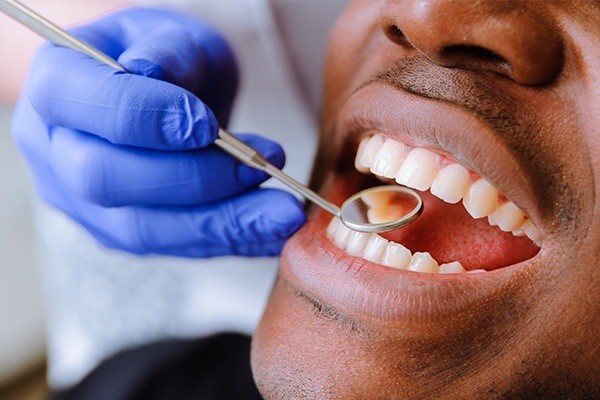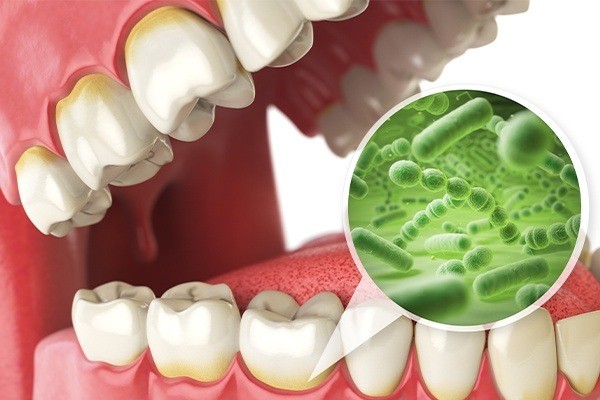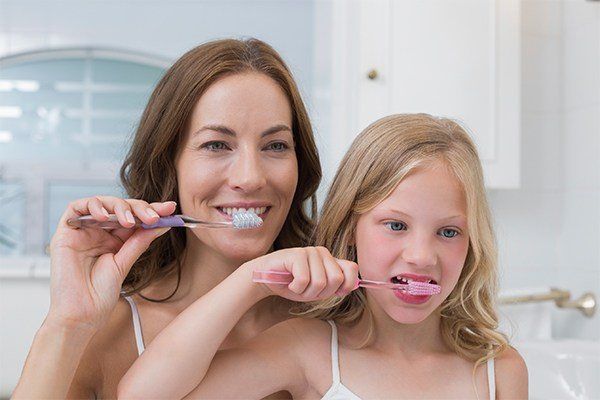2019 Newsletter Cavity Newsletter
Attention All Current and Future Denture Users!
Nobody wants to be told that they have a cavity during their dental exam. But if you’ve ever skipped your oral care routine for an extended period of time or simply introduced many new sweets to your diet, they can easily develop without you knowing.
Of course, this problem is not particularly unique. The CDC’s National Center for Health Statistics 2011-12 report states that 91 percent of adults aged 20 to 64 had dental caries in permanent teeth. That number reaches as high as 96 percent when accounting for adults 65 and older.
It’s worth noting that this issue doesn’t exclusively start at adulthood either. Tooth decay is the most common chronic disease in American children. Based on a report from the American Academy of Pediatrics, 59 percent of kids between 12 and 19 years of age have at least one cavity.
So what is the most common cause of cavities? What can patients at Denton Dental Center do to prevent them and how can Dr. Balington and his team help? In this month’s newsletter, we’ll be exploring these topics in more detail.

Cavities:
What’s the Main Cause?
While the main cause of tooth decay is oral bacteria, it should be noted that your diet has a direct effect on how much oral bacteria lives in your mouth. While not all bacteria are culprits for dental plaque, the colorless substance that sits on the teeth and gums, it is crucial that patients understand how diet influences your risk for plaque development and eventually decay.
When it comes to diet, those who consume sugars and starches on a regular basis are at higher risk of developing decay than those with healthier diets. Sugar and starch act as accelerating agents for bacteria, allowing them to produce more plaque acids in the mouth. The more acids in your mouth at any given time, the more likely your teeth will decay and develop cavities.
For this reason, daily oral hygiene and diet management are crucial steps for patients trying to improve their oral health in between dental visits.

Prevention: Habits Worth Committing To
By committing to daily oral hygiene, keeping a healthy diet, and visiting our office regularly, you dramatically reduce your risk of developing cavities.
Plaque sits on teeth in the form of a biofilm, which allows bacteria inside that plaque to demineralize enamel and create cavities. If that biofilm is removed regularly, ideally twice a day, then you can prevent cavities from developing. Just make sure to brush all the surfaces of your teeth (including the back surfaces where bacteria likes to hide) and always use fluoridated toothpaste. Flossing helps you remove plaque from the sides of teeth where your toothbrush’s bristles can’t reach.
Furthermore, reducing sweets and starches in your diet can make a big difference, as well as making sure you’re drinking enough water. Remember that dry mouth creates an environment for bacteria to thrive, so keeping saliva production high is important to wash away bacteria and allow minerals inside your saliva to protect and strengthen teeth. Eating fruits and vegetables provide essential vitamins and minerals as well as scrub away loose debris and plaque. Chewing sugar-free gum after meals can also make a big difference.

Restoration:
How Denton Dental Center Can Help
Of course, you don’t fully reduce your risk of decay until you commit to regular visits to our office. At-home care and diet will make up the majority of your cavity prevention, but regular visits allow us to confirm that your at-home care is working. It also allows us to catch the early signs of decay and get you on track to better oral health. After all, cavities are incredibly common in American adults.
Denton Dental Center has many services that work to protect and restore teeth. These treatments are proven to provide additional defense against oral bacteria and reduce the risk of needing more substantial dental work later. For example, if you need a filling placed, we offer metal-free restorations. No longer do you have to settle for metal materials thanks to composite resin and it’s aesthetically-pleasing and effective restoration properties. We also offer dental sealants and fluoride treatments for patients in need of extra protection from cavities.
Cavities affect people of all ages, so there’s no reason not to stay proactive at home and at our office. If you or a family member is in need of restorative dental work, we hope you schedule your next visit with us soon!

To Schedule an Appointment!
